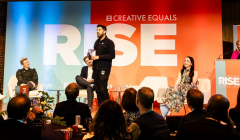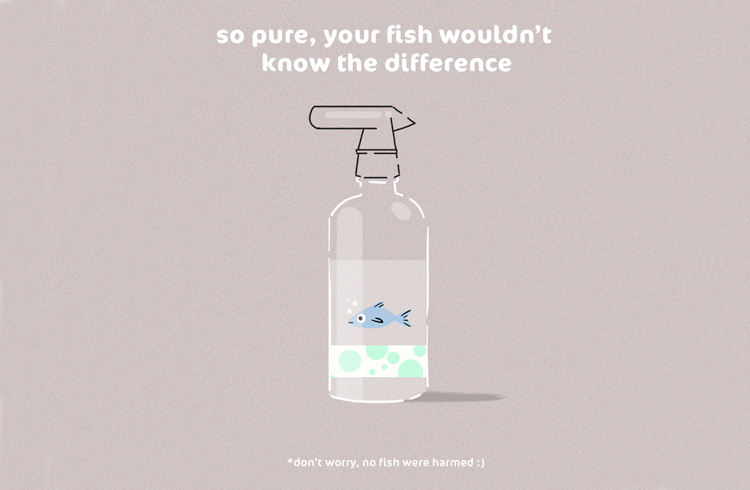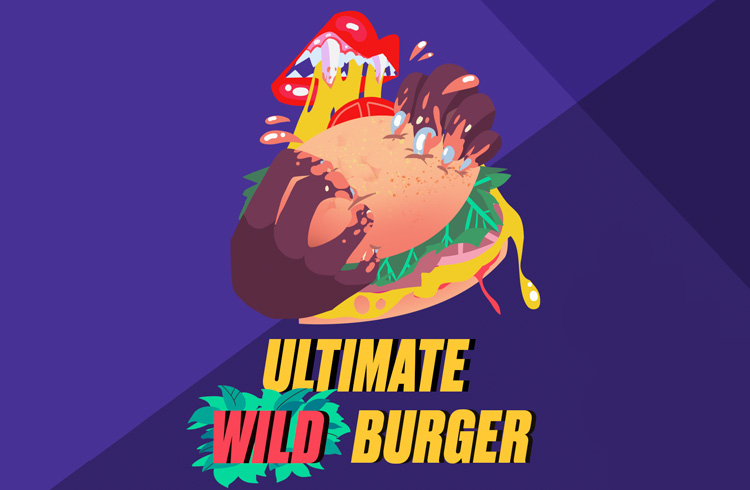
Are we leaving men and boys behind?
At Creative Equal’s RISE event, industry leaders consider how to reframe boys and men in marketing

Fadi Dada, Strategist at Nice and Serious, considers branding in the sustainable start-up world; exploring trends, limitations and its potential to reach broader audiences.

The last few years have seen the rise of a very particular type of business. Some call them ‘Ethical’, others ‘Purpose Driven’; I prefer to think of them as ‘Sustainable Pioneers’.
Their emergence is a direct response to the generations of convenience that gave us single-use plastic, fossil fuels and carcinogens. Rapid globalisation and cheap manufacturing spawned unspeakable amounts of products that fall firmly into the category of ‘crap that nobody will ever need’.
We’ll use materials because they are cheap - science can figure out if they’re toxic later.
We’ll mass produce to save on labour - advertising will create the demand later.
We’ll use as much water, land and trees as we need - they’re all infinite, and if they’re not, we’ll colonise Mars later.
However, this unsustainably cavalier approach to innovation also gave us much of what we value about the present. Useful products and services that have improved our quality of life. They connect us, clean us and clothe us. But more often than not, even the useful stuff was made in a way that is environmentally toxic.
The Sustainable Pioneers...passionate specialists, re-imagining the way we produce and consume.
Fadi Dada
And unless you’ve been living under a rock, you’ll know that how we handle our shit over the next 11 years will produce starkly contrasting outcomes for humans. ‘Business as usual’ equals doom, destruction and eradication. While ‘immediately changing our ways’ might prolong our stay on earth for a little while longer.
Enter, the Sustainable Pioneers. Here to give us the products we love, but in a way that is properly thought through. They are passionate specialists, reimagining the way we produce and consume.
Craving a juicy burger, but hate what animal agriculture is doing to the planet? Look no further than the hundreds of vegan brands currently adorning the shelves of Britain's supermarkets.
Need a new pair of jeans, but can’t quite justify the 2,000 gallons of water it takes to make them? Circular economy manufacturers or specialist restorers are here for you.
Determined to keep your flat clean, but don’t fancy polluting the neighbouring river with chemicals and microplastics? You’re in luck! Refillable plant-based cleaners as far as the eye can see.
Many of these alternatives are born out of visionary leaps in sourcing, supply chains and production processes. They are big forward-thinking feats in the way that things can and should be done. Yet, the visual and verbal language used to sell them can often be clichéd, technical and niche.
‘Plant-based’, ‘cruelty-free’ and ‘zero-waste’ are all beautiful ideas, but they don’t capture the imagination of people that aren’t already motivated to act. And, considering the planet saving potential of Sustainable Pioneers, that’s a travesty. Because while they’re revolutionising their industries and doing their bit to reimagine our future, many of them are hung up on talking about the things that they don’t do.

Sustainable Pioneers tend to spring up from movements and subcultures at the avant-garde of sustainable living. If their start-up identity reflects this heritage both visually and verbally, it can help a newly launched brand quickly build a dedicated following of like-minded folk and engage them in a way that is clear and authentic.
They overwhelmingly choose simple, pared-back, muted colours and sans-serif typography as a marker of their authenticity and belief in conscious consumerism. But is it enough to appeal to a small niche of people who are already on board with your agenda? Unfortunately, the answer is no.
You’re not really solving the problem if you leave people behind. You’re just creating more stuff.
Fadi Dada
Most people don’t pay much attention to how the wheel is made; they just want the best wheel. To these people, non-toxic chemicals might mean ‘crap at cleaning my floor’. Zero waste beer might mean not brewed properly. And a cruelty free patty, well, you know the drill… ‘Protein deficient vegans forcing their anaemia on the rest of us’.
It’s not that people don’t care; the evidence suggests that the majority do. It’s just that the details either confuse, frighten or trigger them.
So, should Sustainable Pioneers try and broaden their appeal? Or do they double down on their dedicated niche? For me, the answer is obvious; you’re not really solving the problem if you leave people behind. You’re just creating more stuff. And ethics aside, there’s practical considerations too. Successful brands grow by increasing their appeal, rather than doubling down on a small segment of niche supporters.
It’s tempting to think that people put more thought into their buying decisions than they actually do. Most of our buying happens in the emotional brain, and it’s triggered by instinct. Successful brands harness that dynamic and cultivate broad appeal to buyers across their entire category.
Rather than being a misunderstood turnoff, the sustainability story can be used to distinctly frame the thing that all buyers in the category want. When harnessed correctly, it finds the balance between triggering instinctual responses around the general consumer’s primary needs and landing the Sustainable Pioneer’s planet-saving credentials.

To do that, Sustainable Pioneers can identify the values and character inherent to the brand, qualities it can authentically claim, own and amplify throughout its identity and experiences. This is where they will find distinction; playing to their brand’s intrinsic strengths.
They need to harness the power of that story, and find a way to make it feel big, emotive and instinctive. From there, they can develop a long-term strategy and ambition for their brand, safeguarding them from being copied or overshadowed. This means having a strong story, a crystal-clear vision, and values your audience can truly believe in.
Banner design © Giulia Bavagnoli
In-copy image design © Jade Evans
Fadi Dada is a Strategist at Nice and Serious, a creative agency focused on making creative work the world needs. He’s worked with international charities and brands, including WWF, BAFTA, IKEA, Ben & Jerry's and Mars, to communicate environmental and social issues through branding, campaigns and creative content.
Looks like you need to create a Creativebrief account to perform this action.
Create account Sign inLooks like you need to create a Creativebrief account to perform this action.
Create account Sign in